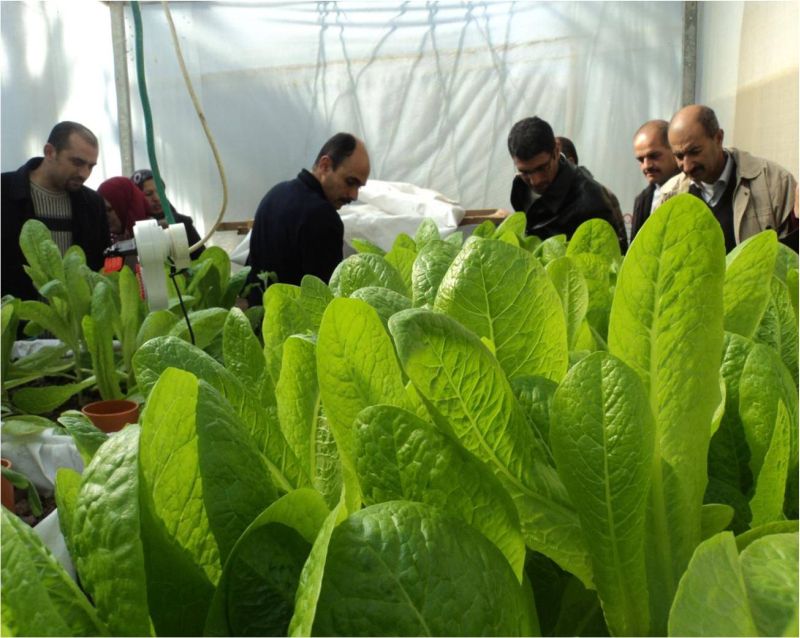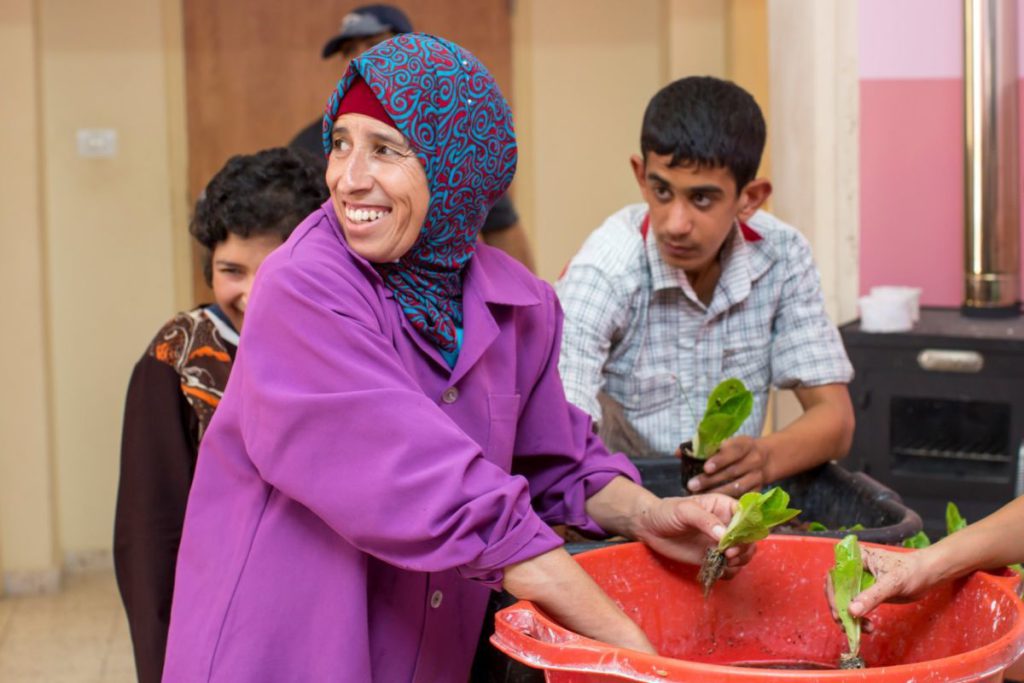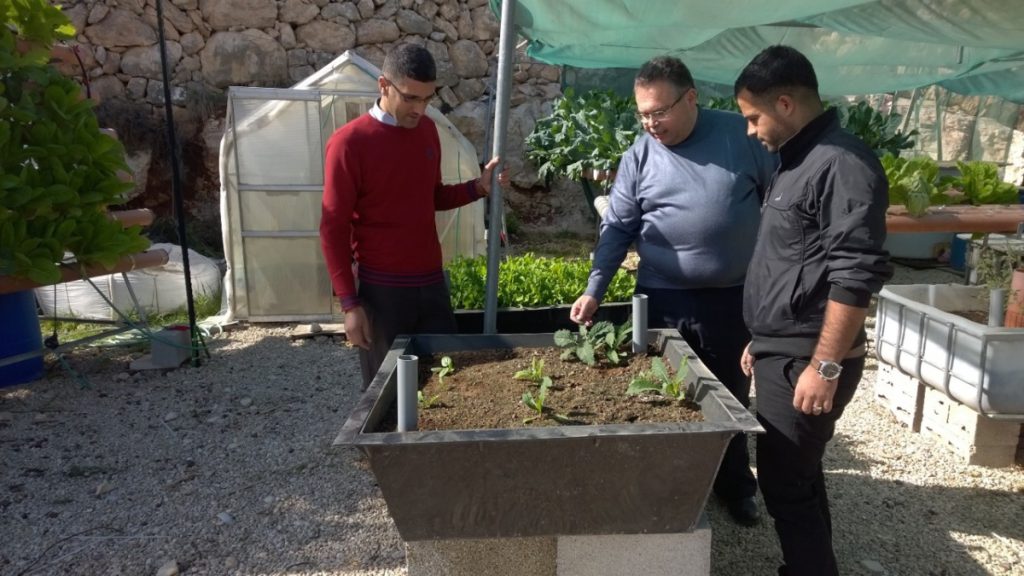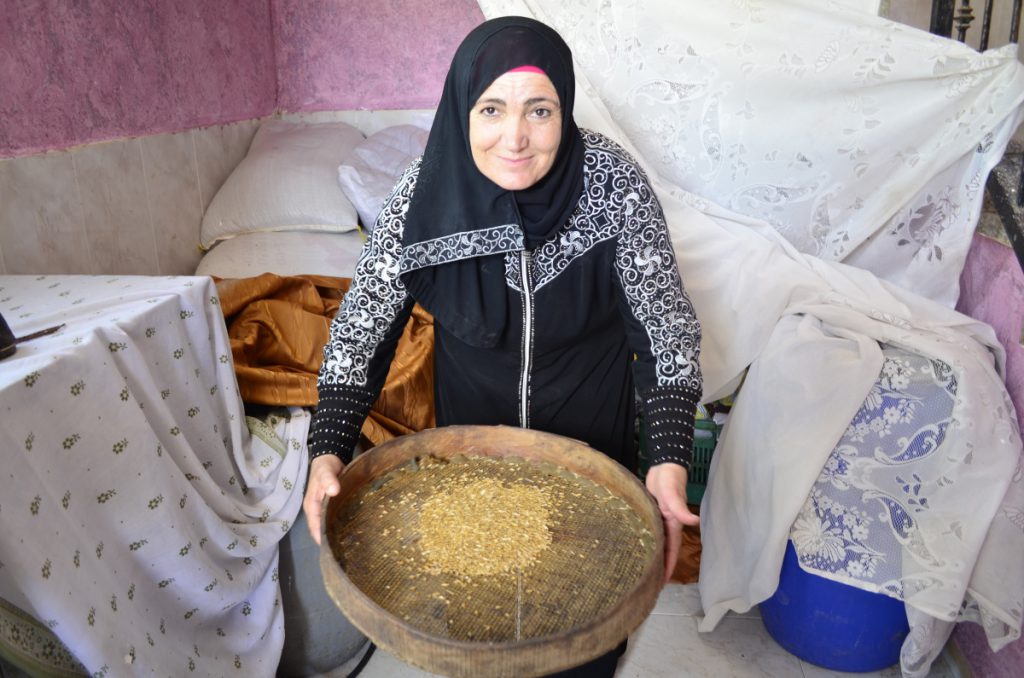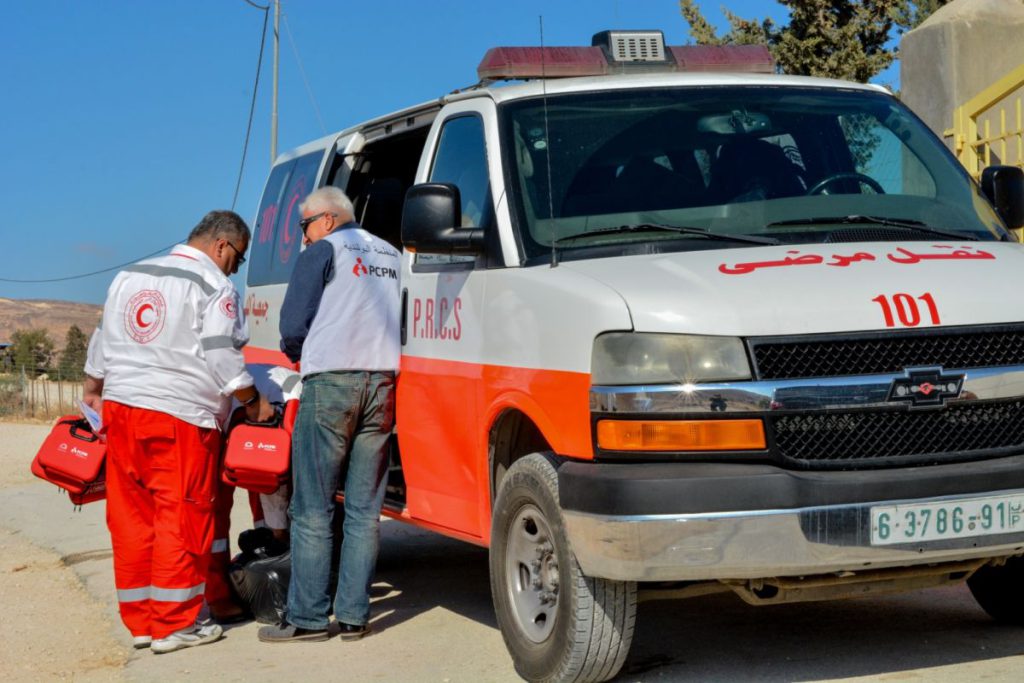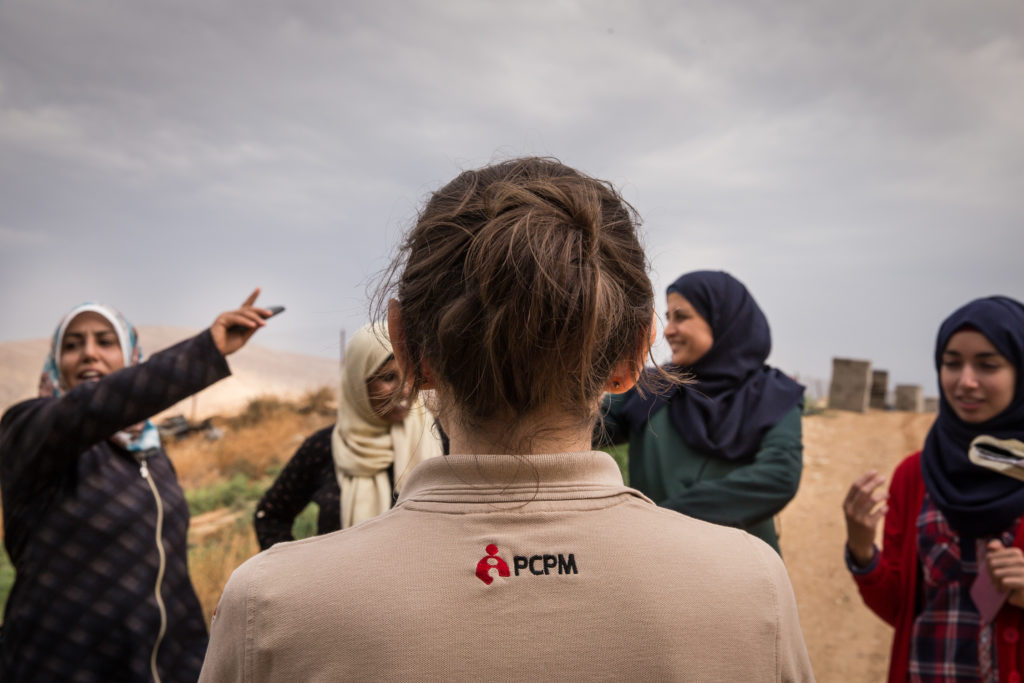Palestine
Palestine
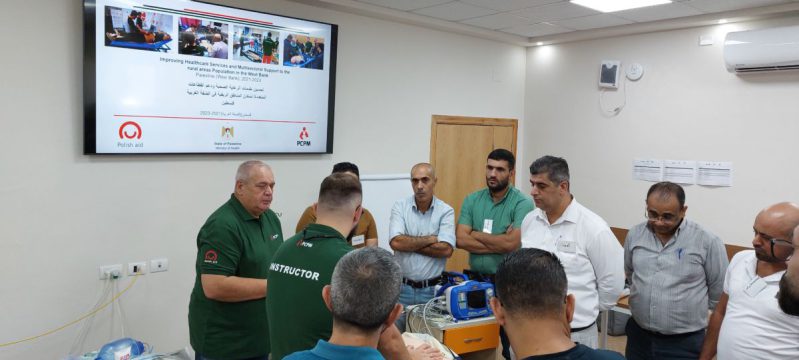
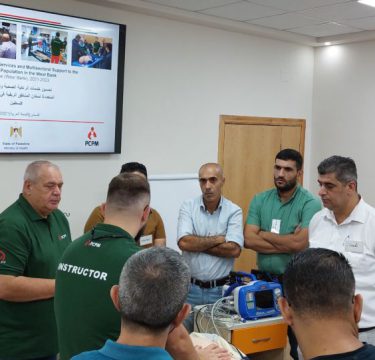
The Polish Center for International Aid Foundation has been operating in the West Bank since 2010. The West Bank is home to approximately 3.3 million people, including 82% Arabs and 18% Israelis, who are concentrated in settlements or East Jerusalem. Due to decades of conflict, this area remains economically underdeveloped and largely dependent on foreign markets and international development aid donors.
Ongoing projects
In 2024, PCPM received funding from the Polish aid program of the Ministry of Foreign Affairs of Poland. As part of the project, from 2024 to the end of 2026, PCPM, together with a local partner, will implement a centralized medical registration system. It will be possible to create electronic patient cards containing the full medical history. The systems will operate in 9 mobile clinics and 4 stationary clinics. The modernization will be expanded to include telemedicine, which will allow people living in hard-to-reach, isolated areas to access medical assistance 7 days a week for 12 hours a day.
32 patient admission points will be equipped with defibrillators, burn treatment supplies, and bandages to stop bleeding. Additionally, training on their use and emergency medicine will be conducted.
The entire project will be strengthened by specialized training to improve the qualifications of medical personnel in pre-hospital emergency medicine (50 doctors), the use of ultrasound in emergency medicine (220 doctors), and telemedicine (60 doctors). At the same time, PCPM will provide 2 high-quality ultrasound machines to the Emergency Center, rehabilitation equipment to a specialized facility, and modernize 20 patient admission points.
Project is co-financed within the framework of the Polish development cooperation of the Ministry of Foreign Affairs of the Republic of Poland.
The PCPM Foundation also responded to the humanitarian crisis in the Gaza Strip, which erupted after October 7, 2023. The Polish Center for International Aid delivered first aid kits and powdered milk for infants. Additionally, members of the PCPM Medical Rescue Team supported the mission in Cairo as part of the EU Civil Protection Mechanism at the request of the World Health Organization (WHO). Experts coordinated the dispatch of medical teams to the conflict-affected Gaza Strip.
Previous activities
Thanks to donations and 1.5% tax contributions, PCPM has supported Palestinian families displaced from the Jenin refugee camp in the West Bank. PCPM foundation allocated USD 8,000 for vouchers to purchase winter clothing for 126 children. Families were forced to evacuate from Jenin camp immediately, taking only essential belongings, believing they were leaving their homes only temporarily. Meanwhile, the camp has remained closed for over a year, and access to the area in order to retrieve personal belongings is still not possible. This assistance is a direct result of donor solidarity and contributions, and provides real support to those most affected.
At first, the Foundation’s projects focused on supporting women’s co-operatives and agricultural development. For example, the use of hydroponic cultivation allowed agricultural production without the need for farmland. They had farmed olives, which, after processing, were sold on the local market and abroad.
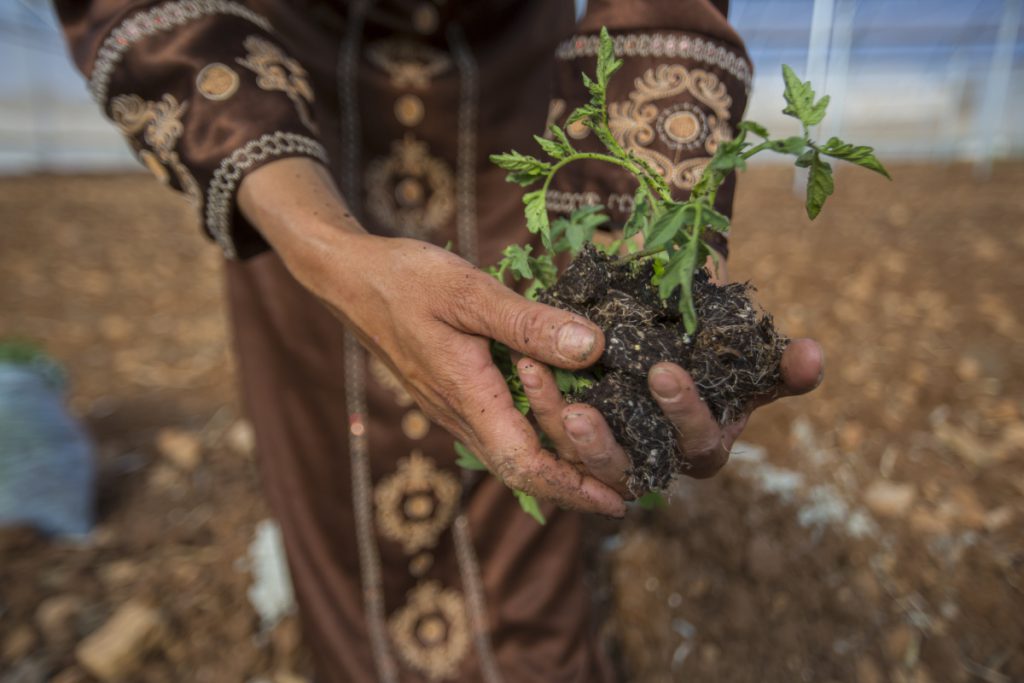
In the last few years, the Polish Center for International Aid Foundation in Palestine improving the access and quality of medical care for West Bank residents. The Foundation trains medics, and instructors supports the development of mobile clinics that can reach small villages with aid, and provides first aid kits and specialized diagnostic equipment. Nearly 60 percent of the West Bank is so-called Zone C – an area administered and controlled by the Israeli authorities. The Palestinian Authority, including the Ministry of Health, cannot build a network of clinics there, hence mobile clinics are the only option for residents. These clinics are run by the Palestinian Medical Relief Society (PMRS) one of the largest health organizations in Palestine.
For us, the most important thing is to build a future here, to make local medical services independent of our help.
Zuzanna Wójcińska, Polish Center for international Aid
The PCPM is running a training program for medical staff in Palestine. The objective is to train new instructors in the use of ultrasound in emergency medicine and advanced medical procedures in trauma and sudden cardiac arrest.
Mobile clinics reach approximately 30 villages in the West Bank with difficult access to health care. Such a clinic consists of a primary care doctor, a gynecologist, a laboratory technician, and 2 local health workers commuting to the villages. Through a joint effort with PMRS, more than 45 rooms have also been renovated over three years to accommodate the commuting doctors from the mobile clinics.
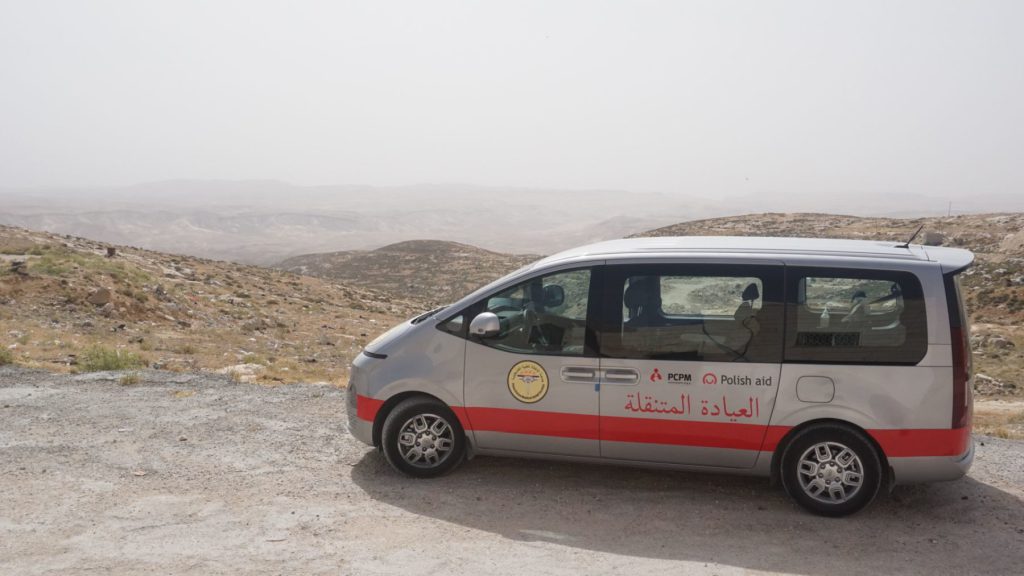
Staff from the mobile clinics also served an educational role. As part of the project and in collaboration with PMRS, awareness-raising sessions on the most common health problems, including COVID-19, anemia, nutrition, or acute infections, were conducted among the residents of 24 villages. Three national health prevention campaigns were also organized on the topics of breast cancer, chronic diseases (hypertension, diabetes, etc.), and childhood diseases.
To increase access to the most basic medical care, the PCPM in collaboration with PMRS organizes training of volunteer groups in prevention and health promotion.
In total, PMRS, with the support of the PCPM Foundation, established and trained 28 volunteer groups (271 people) in the districts of Hebron and Jain in 2023. Each group initially received five general training sessions, followed by seven to 10 Basic Life Support (BLS) training sessions.
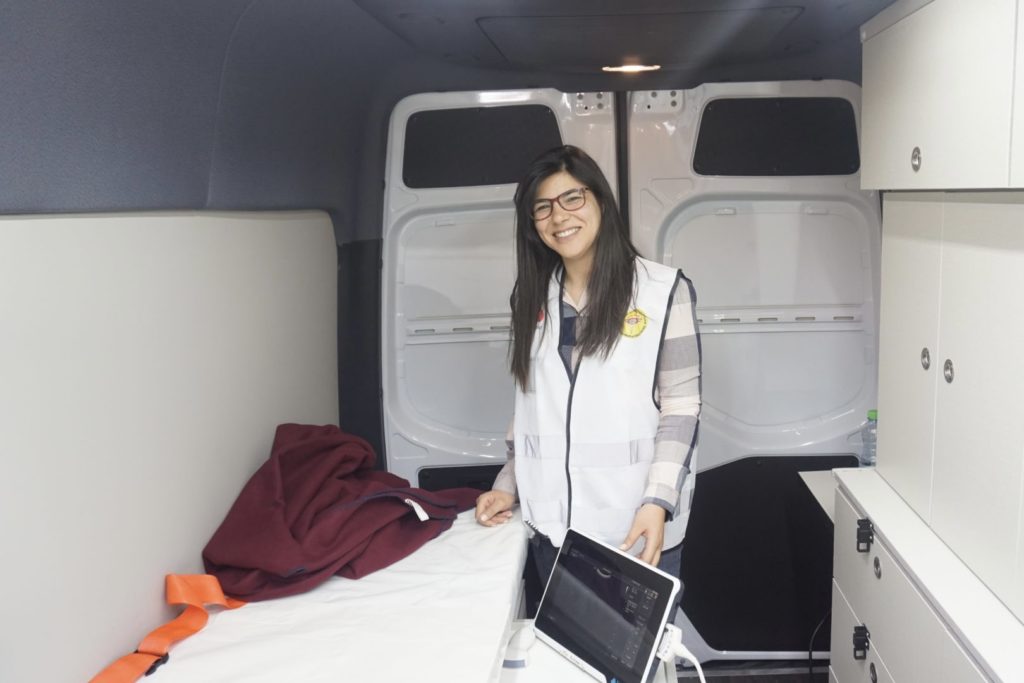
Thanks to the project funded by the Polish Aid program of the Ministry of Foreign Affairs of the Republic of Poland, the PCPM has worked with the Palestinian Red Crescent Committee (PRCS). It continues to work with the Palestinian International Cooperation Agency (PICA), which coordinates the Rapid Response and Rescue Team on behalf of the Palestinian Ministry of Foreign Affairs, and the Palestinian Ministry of Health.
Most of the projects implemented in the West Bank are funded by the Polish Aid program of the Ministry of Foreign Affairs of Poland.
